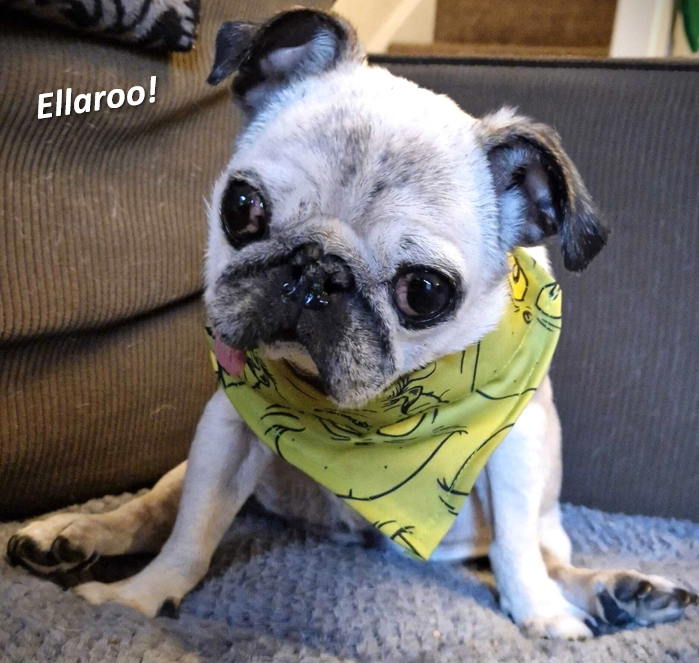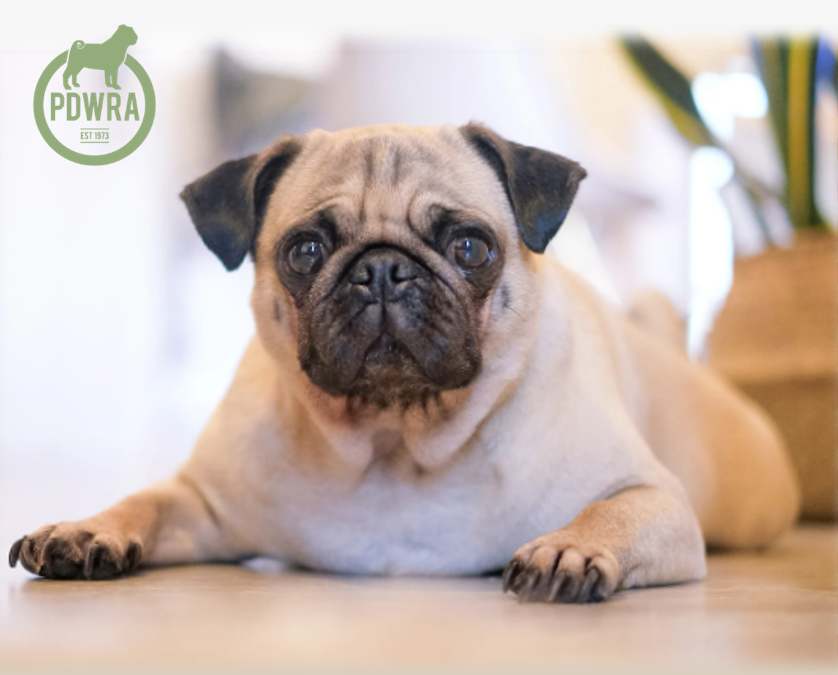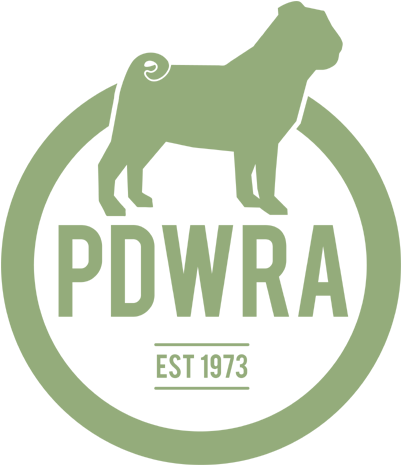My name is Kate and I live in Herefordshire. I carry out home checks and interviews for volunteer fosterer applicants, as an Operations Volunteering Officer (OVO) with Guide Dogs
and undertake a similar role on a voluntary basis for PDWRA.
Although the dogs that we are looking to place are quite different, (that is an understatement!), there are many similarities in the kinds of home/potential owner/carer, we are looking for. A clean, clutter-free home and a fully enclosed, safe garden are obvious,
and I also like to paint a realistic picture of the kinds of dog they may be asked to look after, as well as exploring the applicant’s incentives and relevant experience.
Breed-specific knowledge is important for homes for rescue pugs, but as long as a fosterer applicant is comfortable with a large, energetic dog in the home, then this aspect is less important for a Guide Dog fosterer, as the Team will monitor a dog’s health on a daily basis and training is given for general dog health care. GDs volunteers also receive bespoke, dog handling
training, as there are some differences to caring for a trainee GD as opposed to a pet dog, such as pausing at kerbs or being walked on the left.
I like to take the opportunity to discuss environment enrichment options for keeping dogs mentally stimulated, as often, applicants haven’t really heard/thought about this and it can really help as a tool for living harmoniously, alongside a furry friend. I have had to decline applicants for various reasons, but I find a good base-line is whether you would be happy to leave your own dog in the care of the applicant.
Red flags are a home that is too clean – there is such a thing! Are they prepared for muddy paws/toilet accidents?
Also, you do get a ‘vibe’ from people. I declined an applicant as he was still breeding from his 12 year old, female pet dog and didn’t see anything wrong with this. He also hadn’t drawn the curtains in the room we had met in, and the set-up just felt wrong. Be guided by your gut-instinct!
On PDWRA home checks, I try to take my elderly pug Ellaroo, who has mobility issues, as watching how an applicant interacts with her is a valuable insight.

You don’t have the responsibility of declining applicants at the end of the home check, you just explain that there are some considerations for the office to look at before an outcome can be confirmed.
As a PDWRA home checker, you are part of a process, gathering pertinent information so that the Team can make an informed decision. As a GDs OVO, we make the decision as to whether the home/applicant is suitable ourselves, but we do have a small Team of colleagues to discuss any concerns that we may have.
I would recommend the PDWRA home check role for anyone who would like to support the organisation, but that are not in a position to board/re-home a pug themselves.
It is incredibly rewarding, and you get to meet some like-minded, pug-obsessed people – what’s not to like?!
Kate.
If you feel you could volunteer to Homecheck for PDWRA please read this section where you can apply too!:
Volunteering for PDWRA | The Pug Dog Welfare & Rescue Association (pugwelfare-rescue.org.uk)


